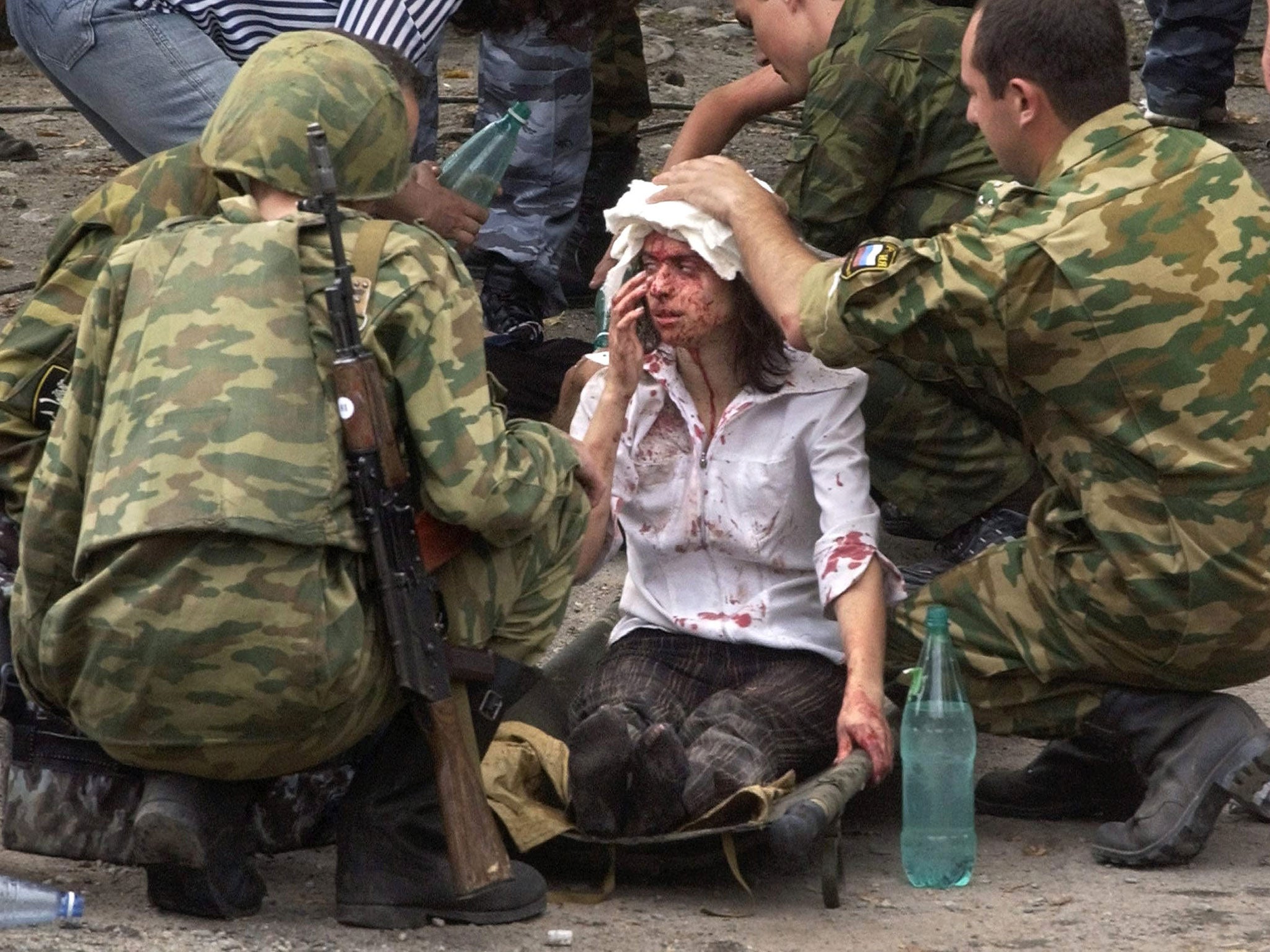Beslan school siege: European court condemns Russia for role in 2004 massacre
Judges find there were ‘serious shortcomings’ at almost every stage of Russia’s official response, after 30 terrorists took over a school in North Ossetia

Your support helps us to tell the story
From reproductive rights to climate change to Big Tech, The Independent is on the ground when the story is developing. Whether it's investigating the financials of Elon Musk's pro-Trump PAC or producing our latest documentary, 'The A Word', which shines a light on the American women fighting for reproductive rights, we know how important it is to parse out the facts from the messaging.
At such a critical moment in US history, we need reporters on the ground. Your donation allows us to keep sending journalists to speak to both sides of the story.
The Independent is trusted by Americans across the entire political spectrum. And unlike many other quality news outlets, we choose not to lock Americans out of our reporting and analysis with paywalls. We believe quality journalism should be available to everyone, paid for by those who can afford it.
Your support makes all the difference.The European Court of Human Rights has condemned Russia over its failure to protect the hundreds of people who died when Chechen militants took over a school in Beslan in 2004.
The court ruled that serious failings by the Russian authorities meant that the victims’ right to life was violated, and ordered Russia to pay €3m (£2.5m) in reparations and €88,000 in legal costs.
The Beslan school siege began when 30 separatist gunmen took more than 1,100 hostages in School Number One in September 2004. Russian special forces stormed the building in a blaze of gunfire after 52 hours, and the hail of bullets, explosions and fire that followed killed 334 people, including more than 180 children.
The episode was one of the darkest in Vladimir Putin’s long tenure in Russia and some residents still blame him for the official response.
On Thursday morning, the Echr ruled unanimously that Russia had failed to prevent the attack, despite intelligence services having “specific information of a planned terrorist attack in the area, linked to an educational institution”.
The judges also found there were “serious shortcomings” in the security operation to end the siege, which culminated in there not being a single fire engine at the scene when the raid occurred.
And they ruled that the use of tanks, grenade launchers and flame-throwers to break the hostage situation “contributed to the casualties among the hostages” and was not justified in the circumstances.
The case was brought by 409 people, including those injured and taken as hostage in the attack itself, as well as family members of those killed.
The Kremlin described the court’s conclusion as “unacceptable”, and a spokesman said Russia could not agree with its ruling.
“We cannot agree with such a conclusion in a country that has been a victim of terrorist attacks multiple times,” said Kremlin spokesman Dmitry Peskov.
“Unfortunately the list of such countries is growing and is unfortunately growing regularly, so such conclusions for a country that endured an attack are absolutely unacceptable.”
A lawyer who represented victims of the siege and their families said they too were not happy with the findings. He said they had only achieved a partial victory, and the focus would now be on trying to hold to account Russian officials over their failings.
“We are not entirely happy with the decision,” Sergei Knyazkin, a lawyer for campaign group the Beslan Mothers Committee, told Reuters. “Three million euros in compensation is not enough, because you cannot measure the death of children in such figures.
“The victims insist that the authorities carry the blame for the badly conducted operation to free the hostages in Beslan.”
The Russian defence ministry indicated its intention to appeal the ruling. It said an official Russian probe had found the special forces’ actions in ending the siege were proportionate.
The events of 2004 came during an intense flare-up in separatist violence in Chechnya. Two weeks earlier, suicide bombers downed two Russian airliners on the same night, killing 90 people, and another bomber killed 10 outside a Moscow metro station.
Chechen rebel warlord Shamil Basayev claimed responsibility for orchestrating the Beslan siege. The Russian government put a price of $10m (£8m) on his head and in July 2006 he was killed in what the FSB called a “special operation”.
Join our commenting forum
Join thought-provoking conversations, follow other Independent readers and see their replies
Comments